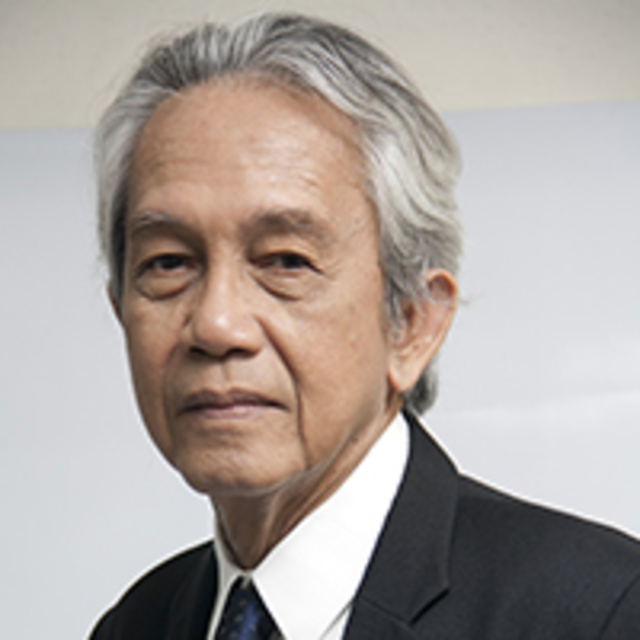

Federalism, proponents and opponents agree, is dead. The House of Representatives initiative the first week of October, a few days before its long recess, more important, just before the start of filing for candidacies, burst into the scene then just as quickly disappeared. Was it a shooting star? Or a ghost?
Most attention was drawn to the way the draft's transitory provisions removed the Vice President from the line of succession. This was immediately attacked not just by the opposition. Continuing the disarray among administration proponents of federalism, Conrado "Ding" Generoso, the spokesman of President Rodrigo Duterte's Consultative Committee (Con-com), called the House draft "worse than the 1935 constitution." Interior Assistant Secretary Jonathan Malaya spoke for the PDP-Laban proponents of federalism in opposition to the House draft.
Even Speaker Gloria Macapagal Arroyo distanced herself from the presidential succession proposal. Its main proponent, apparently, was Leyte 3rd District Representative Vicente Veloso who chairs the House committee on constitutional amendments. Veloso's explanation: it was necessary to prevent "instability." With Vice President Leni Robredo's lead only at 200,000 votes, and Bongbong Marcos' poll protest, it's not clear who will be vice president, Veloso said.
Robredo's response poked fun at Veloso. You should not use that argument, Robredo said. Your margin of victory was less than a hundred votes, and there's also an election protest against you. Is there, in fact, a "Cong. Veloso"?
The House proposal, dubbed Resolution of Both Houses (RBH) No. 15, sponsored by Speaker Arroyo and 21 other lawmakers, is a veritable grab bag of early Christmas gifts. For members of the House, a 4- instead 3-year term, and the removal of term limits. Local government officials would also benefit. And RBH 15 would not impose the division of the Philippines into a specific number of federal states. It would instead give localities the option to petition Congress to turn them into federal states.
Other parts of RBH15 were lifted from existing proposed constitutions, either the ConCom or the PDP-Laban's. As ConCom's Generoso points out, reform elements in the ConCom draft such as the proposals for proportional representation and anti-dynasty were not copied. Understandably, even opposition legislators supported the lifting of term limits.
Since the ambition is to have the draft ratified by May 2019, it would have to be approved by the Senate by February or early March 2019. Instead Senate leaders quickly killed the proposal. Senate President Tito Sotto said they "don't have time to even talk about it." Senate Minority Leader Franklin Drilon called it "dead on arrival."
RBH 15 may actually be "dead on departure." On October 10, the House voted unanimously to refer the proposal back to committee. Congress adjourned on October 12 until November 11. Filing of certificates of candidacy for the 2019 polls began October 11. The House will resume session for a month, from November 12 to December 14. After Christmas and New Year, Congress will briefly hold session from January 14 to February 8, just before the start of the 2019 campaign.
Although some opposition people speculated that RBH 15 secretly planned on reviving "no-el" (no elections), at this point, nothing short of Duterte declaring a "revolutionary government" can revive the "chacha/federalism initiative. Election season is now rampant. There will be a new Senate and House of Representatives after the May 2019 election. It is not clear what the political situation will be at that time.
What was behind the RBH 15 initiative? It is hard to say since there is not much logic to the proposal. While projecting a tight schedule culminating in a May 2019 ratification, it does not say anything about how to secure Senate support. Making the Senate President Number 1 in the line of succession? Not much of an incentive since Sotto immediately torpedoed the proposal.
The timing is curious. The only possible explanation is that the House leadership believed rumors about President Duterte's ill health and wanted a negotiating position with whoever took over. It is unlikely that the Speaker actually thought she could succeed as President, but if term limits could be lifted she could then remain as Speaker.
Poor GMA, she can't bring enough gifts to be Santa. She will always be Scrooge. – Rappler.com
Joel Rocamora is a political analyst and a seasoned civil society leader. An activist-scholar, he finished his PhD in Politics, Asian Studies, and International Relations in Cornell University, and had been the head of the Institute for Popular Democracy, the Transnational Institute, the Akbayan Citizens' Action Party, and member of a number of non-governmental organizations. From the parliament of the streets, he crossed over to the government and joined the Aquino Cabinet as lead convenor of the National Anti-Poverty Commission.